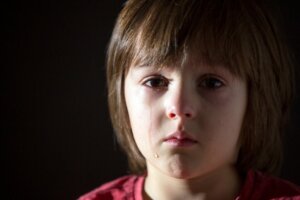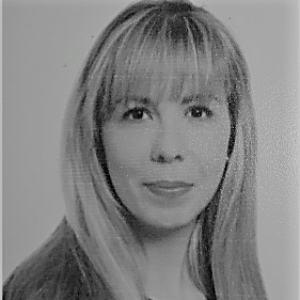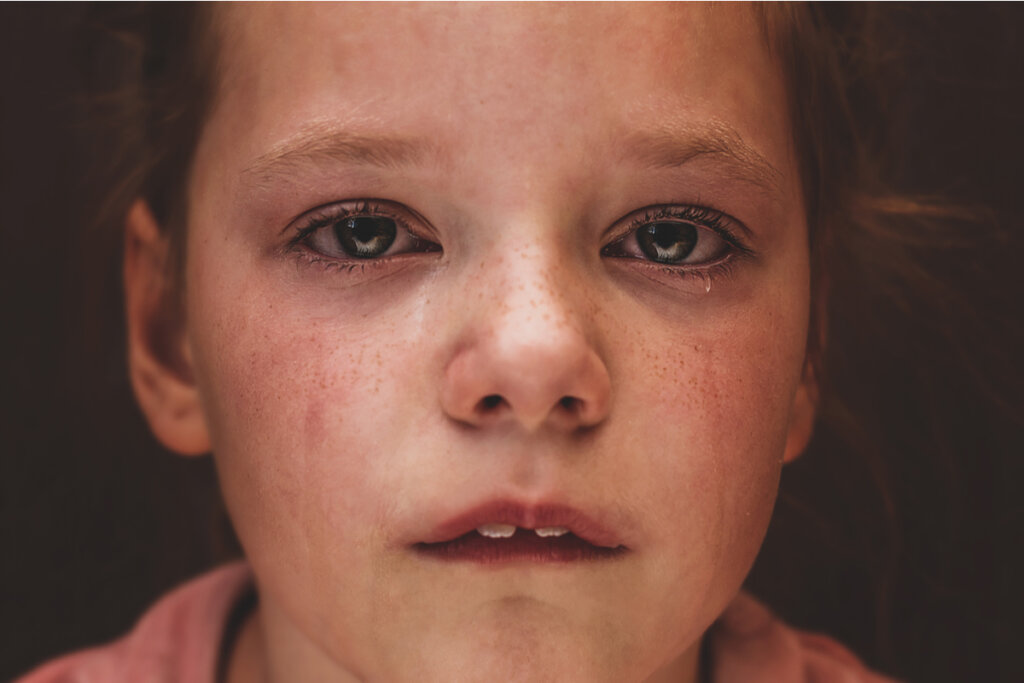The Effects of Growing Up in a Dysfunctional Family


Written and verified by the psychologist Cristina Roda Rivera
As a rule, the family environment is where we learn to interact with others. However, what’s it like to grow up in a dysfunctional family? What consequences does it have for children?
Every family is unique in the way its members interact. While some families provide children with love, affection, and a safe environment, many others maintain dynamics that are unhelpful and negatively affect the personality of the growing child.
Healthy families are those in which the child feels safe, protected, and free. Their boundaries are respected, their uniqueness is appreciated, and their needs are met. On the other hand, dysfunctional families have dynamics in which parents repeatedly and consistently neglect their children, emotionally traumatize them, and treat them in disrespectful ways.
Families that don’t generate security
No childhood is perfect. That said, growing up in a dysfunctional family can cause wounds that are so deep they affect children for the rest of their lives. So, what defines dysfunction and how do you know if your family fits this classification?
Growing up in a dysfunctional family can mean many things. In most cases, the home is unstable and full of conflict. Commonly, there’s drug or alcohol abuse, neglect, and dependency which causes the child to suffer on a daily basis.

Types of families
Dysfunctional families create environments that tend to be experienced as chaotic and insecure, as one parent often behaves in unpredictable and inappropriate ways. In fact, children who grow up in dysfunctional families have no control over their toxic home environment.
Most dysfunctional homes are a combination of two or more of the following unhealthy dynamics:
- Chaotic homes. Parents are often absent and behave inappropriately. They’re busy leading their own lives and neglect the needs of their children.
- High-conflict families. There’s conflict between the parents or between the child and the parents. Children in these kinds of families grow up feeling insecure, under constant stress, and unable to form emotional bonds.
- Homes with pathological parents. One or both parents are pathological. This means they have a personality or mood disorder. Alternatively, they may suffer alcohol or drug abuse.
- Dominant Parent homes. One of the parents is domineering and overly controlling and ignores the needs and feelings of their partner and children. The couple and the children develop repressed negative and angry emotions.
- Households with emotionally distant parents. These parents don’t know how to deliberately express or repress any emotions. This is usually due to certain cultural backgrounds. Children in such families grow up with low self-esteem and are equally or even more expressionless.
The psychological effects of growing up in a dysfunctional family
It’s difficult for a child who grew up in a dysfunctional family dynamic to form healthy boundaries, have healthy self-esteem, and build respectful and loving relationships. Furthermore, they often repeat the parenting pattern they learned in their childhood and indulge in self-destructive behavior as a means of escape.
The pains of abuse reverberate over decades and can change a person for life. Were you the victim of any abuse or neglect growing up? If so, here are some of the lifelong impacts you’ve possibly experienced.
1. Trust issues
This is one of the most important issues. When children can’t trust the people who gave them life, they grow up feeling like they can’t trust anyone.
2. Inability to set limits on abuse
They learn to forgive or ignore bad behavior. After all, they’ve grown up seeing their parents, caregivers, and family members condone abusive behavior. Consequently, they’re also expected to excuse and dismiss bad behavior.
3. Learning not to talk about problems and waiting for them to explode
Members of a dysfunctional family learn to sweep things under the rug. Communication skills are lacking because no one wants to deal with problems, so they spend little time interacting.
4. Anxiety and depression problems
Growing up in erratic or unpredictable conditions affects how children manage stress. In fact, they’re constantly on guard because they never know what’ll happen next.
Even when they’re grown up and have a place of their own, their brain has been programmed to live in a state of constant alertness. This means their fight or flight mode doesn’t get activated as quickly as that of others, as their body is used to higher levels of stress-related hormones like cortisol.
5. Scapegoats free other members of the family from responsibilities
There’s almost always at least one family scapegoat in a dysfunctional family. They’re used to shouldering the blame for all the family problems. It creates a distraction from the dysfunction itself and gives the family the sympathy they crave in social circles.
6. Financial mismanagement
Children who grew up in chaotic environments might never have learned how to manage their money effectively. Indeed, not having a positive example of paying rent, and household bills can have a considerable impact on them.
In addition, some dysfunctional families lack economic stability. Consequently, it’s difficult for the child to learn the importance of not spending everything they have on frivolous purchases without thinking about tomorrow.
7. Learning violence
Have you ever heard that the abused becomes the abuser? Unfortunately, it’s quite a common occurrence. It’s because they never learned effective ways of handling conflict.
8. Self-medication with drugs and alcohol
Many people don’t know how to deal with all the things that happened to them in the past, so they try to self-medicate to ease the pain.
The downside to this thought process is that the numbness wears off when the intoxication wears off, but they still have to face reality.

9. Continuous suffering becomes bearable
Growing up around people who frequently argue, or even avoid communicating, teaches children that conflict is an inevitable part of relationships.
While this is partially true and human conflict is inevitable, dysfunctional families teach unhealthy and insecure ways of dealing with conflict which becomes a problem.
If you’re a parent or caregiver and think you may be falling into some of these dysfunctional family patterns, the least you can do is change your behaviors.
To figure out how to deal with a dysfunctional family or how to heal from one, seeking therapy as an adult may be the way forward. By talking to a professional, you’ll finally have the freedom to process your past in a safe, judgment-free space.
Also, by doing it with someone who’s trained, you’ll find it possible to break the cycle of neglect, abuse, or chaos on your own. A combination of individual therapy and family therapy could be beneficial in breaking these dysfunctional patterns.
As a rule, the family environment is where we learn to interact with others. However, what’s it like to grow up in a dysfunctional family? What consequences does it have for children?
Every family is unique in the way its members interact. While some families provide children with love, affection, and a safe environment, many others maintain dynamics that are unhelpful and negatively affect the personality of the growing child.
Healthy families are those in which the child feels safe, protected, and free. Their boundaries are respected, their uniqueness is appreciated, and their needs are met. On the other hand, dysfunctional families have dynamics in which parents repeatedly and consistently neglect their children, emotionally traumatize them, and treat them in disrespectful ways.
Families that don’t generate security
No childhood is perfect. That said, growing up in a dysfunctional family can cause wounds that are so deep they affect children for the rest of their lives. So, what defines dysfunction and how do you know if your family fits this classification?
Growing up in a dysfunctional family can mean many things. In most cases, the home is unstable and full of conflict. Commonly, there’s drug or alcohol abuse, neglect, and dependency which causes the child to suffer on a daily basis.

Types of families
Dysfunctional families create environments that tend to be experienced as chaotic and insecure, as one parent often behaves in unpredictable and inappropriate ways. In fact, children who grow up in dysfunctional families have no control over their toxic home environment.
Most dysfunctional homes are a combination of two or more of the following unhealthy dynamics:
- Chaotic homes. Parents are often absent and behave inappropriately. They’re busy leading their own lives and neglect the needs of their children.
- High-conflict families. There’s conflict between the parents or between the child and the parents. Children in these kinds of families grow up feeling insecure, under constant stress, and unable to form emotional bonds.
- Homes with pathological parents. One or both parents are pathological. This means they have a personality or mood disorder. Alternatively, they may suffer alcohol or drug abuse.
- Dominant Parent homes. One of the parents is domineering and overly controlling and ignores the needs and feelings of their partner and children. The couple and the children develop repressed negative and angry emotions.
- Households with emotionally distant parents. These parents don’t know how to deliberately express or repress any emotions. This is usually due to certain cultural backgrounds. Children in such families grow up with low self-esteem and are equally or even more expressionless.
The psychological effects of growing up in a dysfunctional family
It’s difficult for a child who grew up in a dysfunctional family dynamic to form healthy boundaries, have healthy self-esteem, and build respectful and loving relationships. Furthermore, they often repeat the parenting pattern they learned in their childhood and indulge in self-destructive behavior as a means of escape.
The pains of abuse reverberate over decades and can change a person for life. Were you the victim of any abuse or neglect growing up? If so, here are some of the lifelong impacts you’ve possibly experienced.
1. Trust issues
This is one of the most important issues. When children can’t trust the people who gave them life, they grow up feeling like they can’t trust anyone.
2. Inability to set limits on abuse
They learn to forgive or ignore bad behavior. After all, they’ve grown up seeing their parents, caregivers, and family members condone abusive behavior. Consequently, they’re also expected to excuse and dismiss bad behavior.
3. Learning not to talk about problems and waiting for them to explode
Members of a dysfunctional family learn to sweep things under the rug. Communication skills are lacking because no one wants to deal with problems, so they spend little time interacting.
4. Anxiety and depression problems
Growing up in erratic or unpredictable conditions affects how children manage stress. In fact, they’re constantly on guard because they never know what’ll happen next.
Even when they’re grown up and have a place of their own, their brain has been programmed to live in a state of constant alertness. This means their fight or flight mode doesn’t get activated as quickly as that of others, as their body is used to higher levels of stress-related hormones like cortisol.
5. Scapegoats free other members of the family from responsibilities
There’s almost always at least one family scapegoat in a dysfunctional family. They’re used to shouldering the blame for all the family problems. It creates a distraction from the dysfunction itself and gives the family the sympathy they crave in social circles.
6. Financial mismanagement
Children who grew up in chaotic environments might never have learned how to manage their money effectively. Indeed, not having a positive example of paying rent, and household bills can have a considerable impact on them.
In addition, some dysfunctional families lack economic stability. Consequently, it’s difficult for the child to learn the importance of not spending everything they have on frivolous purchases without thinking about tomorrow.
7. Learning violence
Have you ever heard that the abused becomes the abuser? Unfortunately, it’s quite a common occurrence. It’s because they never learned effective ways of handling conflict.
8. Self-medication with drugs and alcohol
Many people don’t know how to deal with all the things that happened to them in the past, so they try to self-medicate to ease the pain.
The downside to this thought process is that the numbness wears off when the intoxication wears off, but they still have to face reality.

9. Continuous suffering becomes bearable
Growing up around people who frequently argue, or even avoid communicating, teaches children that conflict is an inevitable part of relationships.
While this is partially true and human conflict is inevitable, dysfunctional families teach unhealthy and insecure ways of dealing with conflict which becomes a problem.
If you’re a parent or caregiver and think you may be falling into some of these dysfunctional family patterns, the least you can do is change your behaviors.
To figure out how to deal with a dysfunctional family or how to heal from one, seeking therapy as an adult may be the way forward. By talking to a professional, you’ll finally have the freedom to process your past in a safe, judgment-free space.
Also, by doing it with someone who’s trained, you’ll find it possible to break the cycle of neglect, abuse, or chaos on your own. A combination of individual therapy and family therapy could be beneficial in breaking these dysfunctional patterns.
All cited sources were thoroughly reviewed by our team to ensure their quality, reliability, currency, and validity. The bibliography of this article was considered reliable and of academic or scientific accuracy.
- Gillis Kaytee. 5 Lecciones que se aprenden de crecer en ambientes disfuncionales.7 de abril de 2022. Psychology Today. https://www.psychologytoday.com/es/blog/5-lecciones-que-se-aprenden-de-crecer-en-ambientes-disfuncionales.
- Ortiz, D. (2008). La terapia familiar sistémica.
- Ubaidi BAA. Costo de crecer en una familia disfuncional. J Fam Med Dis Prev . Publicado en línea el 30 de septiembre de 2017. doi: 10.23937/2469-5793/1510059.
This text is provided for informational purposes only and does not replace consultation with a professional. If in doubt, consult your specialist.







